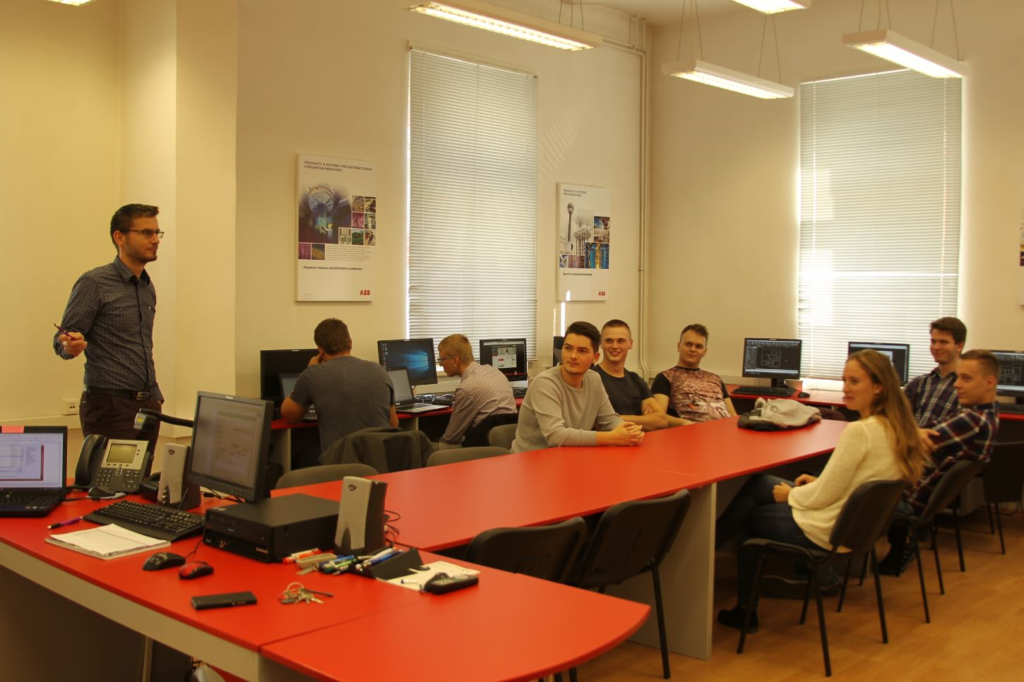Head of laboratory: Ing. Ján Zbojovský, PhD.
Laboratory description:
The laboratory is used for teaching and research purposes. Laboratory exercises and consultations for bachelor’s and engineering students at the Department of Electrical Power Engineering take place here. The teaching equipment is mainly focused on the field of design in the power industry using the programs Eplan, Progecad and Dialux, diagnostic methods in the area of high-voltage insulation systems and other areas of the power industry where computer technology is required. The laboratory is equipped with 12 student client stations and one teacher’s computer station. The laboratory is complemented by modern interactive presentation technology in the form of an interactive touch panel enabling face-to-face teaching as well as remote presentation and teaching and a widescreen projector with a scanning camera for capturing printed materials. bilateral negotiations.
The laboratory has software equipment such as: ProgeCAD and gEDA design systems, EPLAN, Cencross, Keysight VEE Pro virtual engineering environment, Matlab, Octave, FEMM simulation programs.
Subjects and outputs of education:
- Bachelor study: Subject Basics of electrical engineering (Basic knowledge and skills in the field of DC circuit design, creation of technical documentation)
- Bachelor study: Subject Fundamentals of design in power engineering (Expanding knowledge in the field of design in power engineering. Competences in the use of software tools progeCAD, EPLAN and Cencros for the preparation of project documentation.)
- Bachelor study: Subject Faults in the power system (basic knowledge of the methods of operation of electrical networks, short-circuit calculations and their analysis in electrical systems at various types of symmetrical and asymmetrical short-circuits and earth faults)
- Engineering study: Subject Automation in power engineering (basics of control theory and mathematical modeling of systems, principles and application of controllers for process control in power engineering)
- Engineering study: Subject Quality and reliability of electricity supply (basic knowledge of electricity quality indicators, based on problem-oriented examples gaining knowledge about the origin and consequences of deteriorating electricity quality and the possibilities of its improvement) The student will also gain knowledge in the field of electricity supply reliability, methods its calculation and the methods of its evaluation.
- Engineering study: Subject Electromagnetic compatibility (basic knowledge and knowledge in the field of EMC technical equipment and biological systems, origin and propagation of electromagnetic interference, elimination of interference on electronic equipment, effects of impulse phenomena in low voltage networks on electronic equipment, principles of PCB design with respect to electromagnetic immunity, shielding and grounding methods for electronic devices).
- Engineering study: Subject Design of lighting systems (acquaintance with normative requirements and design of lighting systems for indoor and outdoor workplaces, emergency lighting, sports grounds, roads and lighting of buildings)
- Engineering study: Subject Electrical networks (basic knowledge in the field of solving mechanical conditions, design of external power lines and the issue of unidirectional transmissions)

